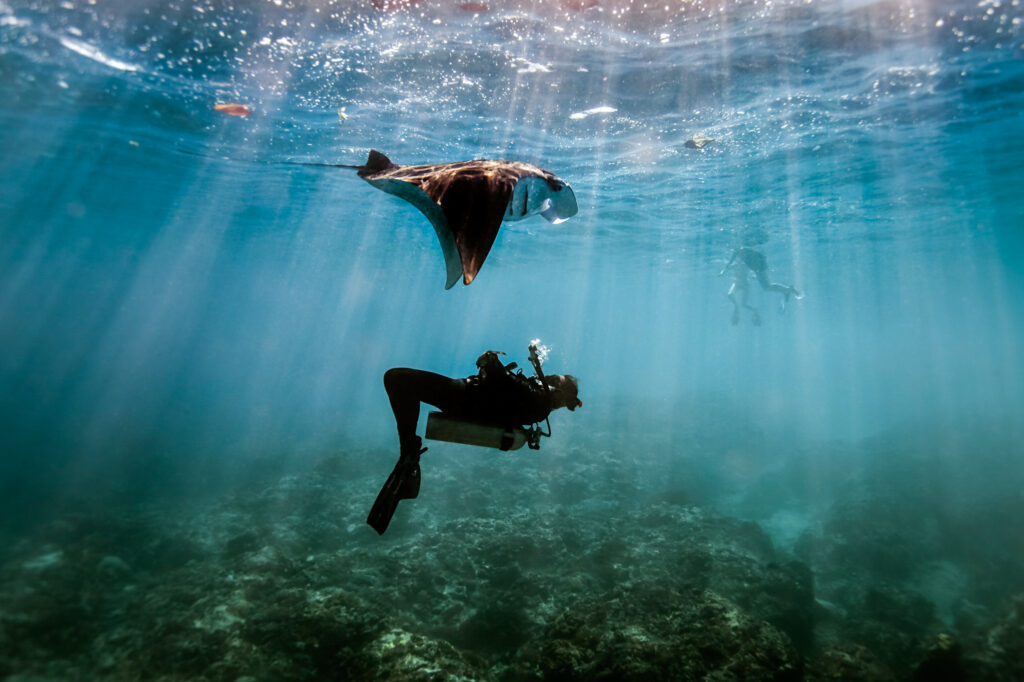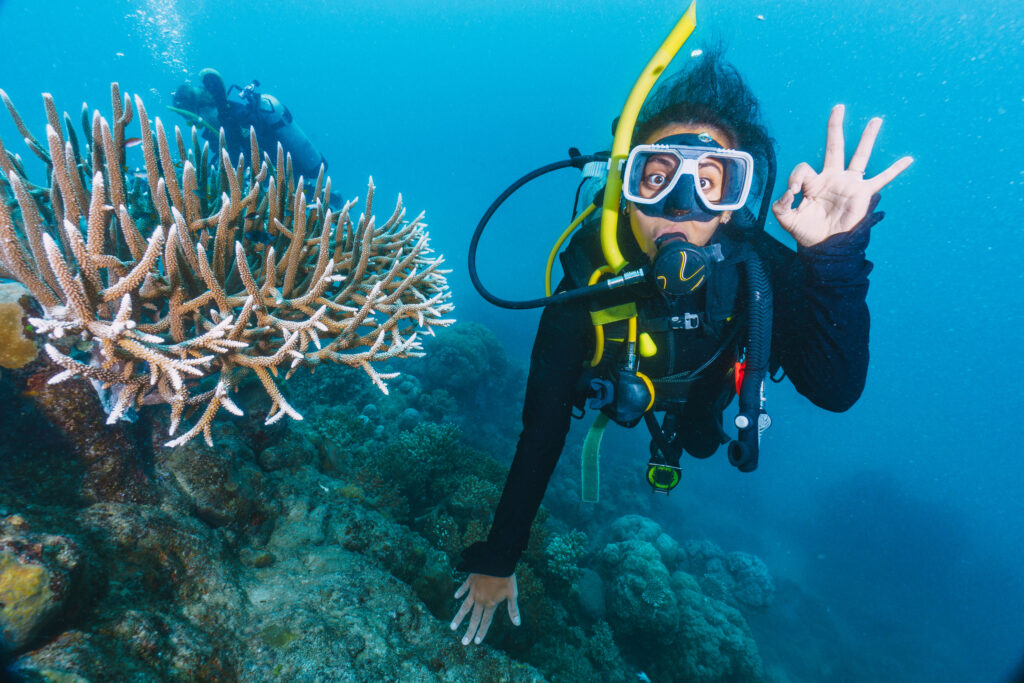What is Scuba Diving?

Scuba diving is a recreational and professional activity where individuals explore underwater environments using self-contained underwater breathing apparatus (SCUBA) equipment. This equipment allows divers to stay underwater for extended periods, enabling them to experience marine life, shipwrecks, caves, and other submerged wonders. The ability to explore these otherwise inaccessible areas has made scuba diving a popular pursuit for adventure enthusiasts, marine biologists, and professional divers alike. Since its modern development in the 20th century, scuba diving has attracted millions of people globally, offering a unique blend of excitement, discovery, and tranquility beneath the waves.
What is Night Diving?

Night diving is a thrilling and unique scuba diving experience that occurs after the sun has set, opening up a world of underwater wonders unseen during the day. It offers divers an opportunity to witness the nocturnal behaviors of marine life and the vibrant colors that are often lost in the daylight. The contrast between the darkness of the water and the focused beam of a dive light creates an atmosphere of mystery and excitement, making night diving an appealing adventure for those looking to experience something beyond the typical daylight dives.
What is an LED Dive Light?

LED dive lights are a critical tool for underwater exploration, providing divers with the necessary illumination to navigate and observe their environment. Light Emitting Diode (LED) technology has revolutionized underwater lighting, offering a reliable and efficient source of light that is well-suited for the unique demands of diving. This article explores the history, technological aspects, design features, types, applications, advantages and disadvantages, maintenance, safety considerations, and market trends of LED dive lights.
What is Open Water Diving?

Open water diving is a fundamental form of recreational scuba diving, characterized by diving in natural bodies of water such as oceans, seas, and lakes. Unlike confined water diving, which takes place in controlled environments like swimming pools, open water diving offers divers the opportunity to experience the vastness and diversity of underwater ecosystems. This type of diving typically involves greater depths and more variable conditions, making it both a thrilling and challenging pursuit for enthusiasts of all levels. The concept of open water diving is integral to the sport, providing the foundation for various specialized diving activities and advanced certifications.
What is Recreational Scuba Diving?

Recreational scuba diving is a popular underwater activity enjoyed by millions of people around the world. It allows individuals to experience the underwater environment firsthand, encountering marine life and underwater landscapes that are typically inaccessible. Unlike commercial or military diving, which focuses on tasks such as underwater construction or defense, recreational scuba diving is primarily for enjoyment and adventure. It involves using a self-contained underwater breathing apparatus (scuba) to breathe underwater, enabling divers to spend extended periods submerged. This activity has grown significantly in popularity due to its appeal to adventurers and nature enthusiasts alike.
What is a Dedicated Dive Resort?

A dedicated dive resort is a specialized vacation destination catering specifically to scuba diving enthusiasts, offering a comprehensive and immersive diving experience. These resorts are strategically located in some of the world’s most sought-after diving areas, providing direct access to vibrant coral reefs, diverse marine life, and underwater attractions. What sets these resorts apart from standard holiday accommodations is their focus on offering tailored services for divers, which may include lodging, dive courses, equipment rental, and guided diving expeditions. Sustainability is a key principle for many dedicated dive resorts, as they place great importance on environmental conservation and responsible tourism practices, aiming to protect the delicate ecosystems that draw guests to these breathtaking underwater environments.
What is a Certification Card (C-card)?

What is a Certification Card (C-card)? A C-card, or certification card, is a plastic identification card issued to scuba divers by recognized certification agencies as proof of their successful completion of diver training and the necessary experience required for a specific level of certification. As scuba diving is a specialized activity that demands comprehensive knowledge, […]
What is Advanced Open Water Diving Certification?

What is Advanced Open Water Diving Certification? Advanced Open Water Diving Certification is a crucial follow-up certification that aspiring divers can attain after completing their Open Water Diver course. This certification allows divers to gain the necessary skills and knowledge to explore deeper depths and participate in various specialized diving activities. The Advanced Open Water […]
